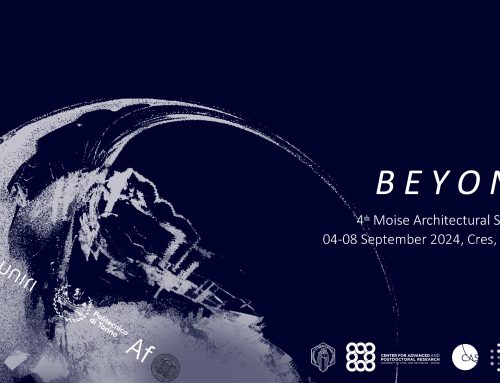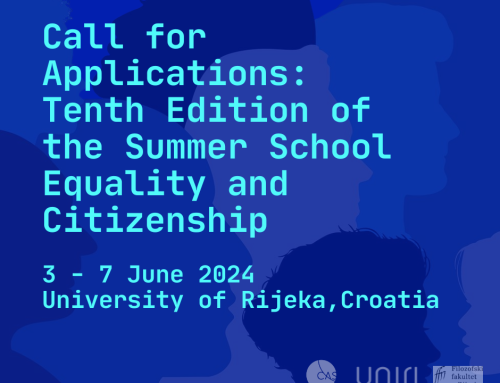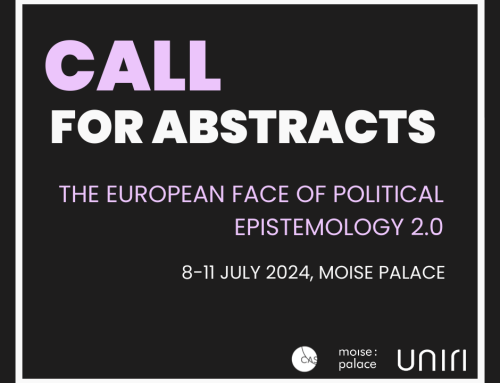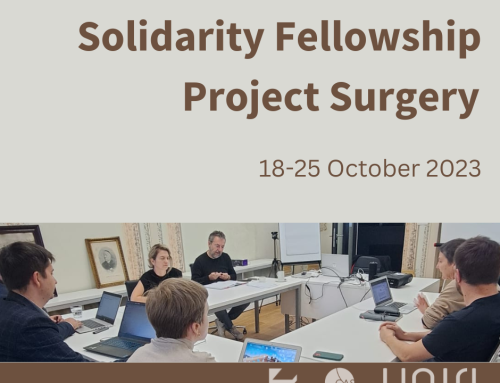summary
venue
Moise Palace, Cres, Croatia
dates
7 September,2024
summer school topic
Architectural To Be: On the Possibility of Being Beyond Being
organizers
Center of Advanced and Postdoctoral Research “Ss. Cyril and Methodius” (CAPRIS UKIM), University in Skopje
Center of Advanced Studies of Southeast Europe (CAS SEE UNIRI), University of Rijeka
Regional Network of Centers for Advanced Studies in Southeast Europe (RECAS)
Institute for Philosophy and Social Theory (IFDT), University of Belgrade
Faculty of Architecture (AF), University of Zagreb
Politecnico di Torino
Architectural To Be: On the Possibility of Being Beyond Being
The question of being, recognized as far back as Antiquity as a central philosophical notion, runs implicitly or explicitly through all philosophical thought. From the very origins of thinking Being, it has been considered the inner unity and necessity of all Entities, thus positing a strict disjunction between any entity, which participates in Being, and non-entity, which does not and is consequently denied any possibility to be. Although this strict dualism of that which is and that which is not would over time be relativized by introducing transient ontological forms that allow for the possibility to be in some incomplete way, the question of Being will here be considered in the framework of Aristotle’s ontological thinking as analogia entis (analogy of being). We follow his insight that Being does not comprise a single overarching categorial framework, but rather that the various categorical uses of the term Being stand in an analogous relation. The history of metaphysics reveals that the Analogy of Being will acquire the scale and stature of a “gigantomachia of Being” (Heidegger), which really represents a history of variations of a single understanding of Being as presence (Anwesenheit). According to this understanding, Being or that which is, is always “now,” “present,” “there,” completely flattening the constitutive horizon of time into an extasy of the present. Criticizing Heidegger’s deconstruction of the history of metaphysics as the history of presentness, Derrida will emphasize that Being after all is not a primordial or arche- event or beginning. For Derrida, the scope of thinking Being as ontological distinction between Being and Entity is based on revealing an obscured urtext, which only establishes a new, metaphysically-determined relation with representation. Thus, Derrida thinks that the difference is written into the very materiality of the metaphysical text, and that Being, that which be, is really absent and only accessible in its Trace.
The question that presents itself is whether following these considerations it is possible to think the originary, the arche- be as beginning, or even as a be that would precede Being itself, in a way even more radical than when Derrida speaks of a Being that is absent in the material trace. Does this to be indicate or gesture towards the Arche that connects to the phenomenon or understanding of architecture as the capacity of creating anew. Is Being or Be written into the materiality of architecture understood not only as Trace in a metaphysical text of the architectural concept but as a beginning that precedes the very “leaving of the trace,” which is to say unintentional and non-abstract writing into the material?
The 7the International Architecture and Philosophy Summer School, titled ‘Architectural To Be’, 04-08 September 2024, is open to experienced scholars, as well as to graduate students at all stages of their studies. Participants present previously approved topics and actively participate in the discussions. ECTS points are available for MA and PhD students. The requirements for ECTS credits are (i) participation in at least 80% of the lectures, (ii) presentation of a prepared original paper on the summer school topic. The organizers will prepare an official certificate, which will include a detailed overview of the students’ obligations (sufficient for 3 ECTS). Whether the given ECTS are recognized as part of the student’s academic program or extracurricular activity in diploma supplements depends solely on the student’s home institution.






